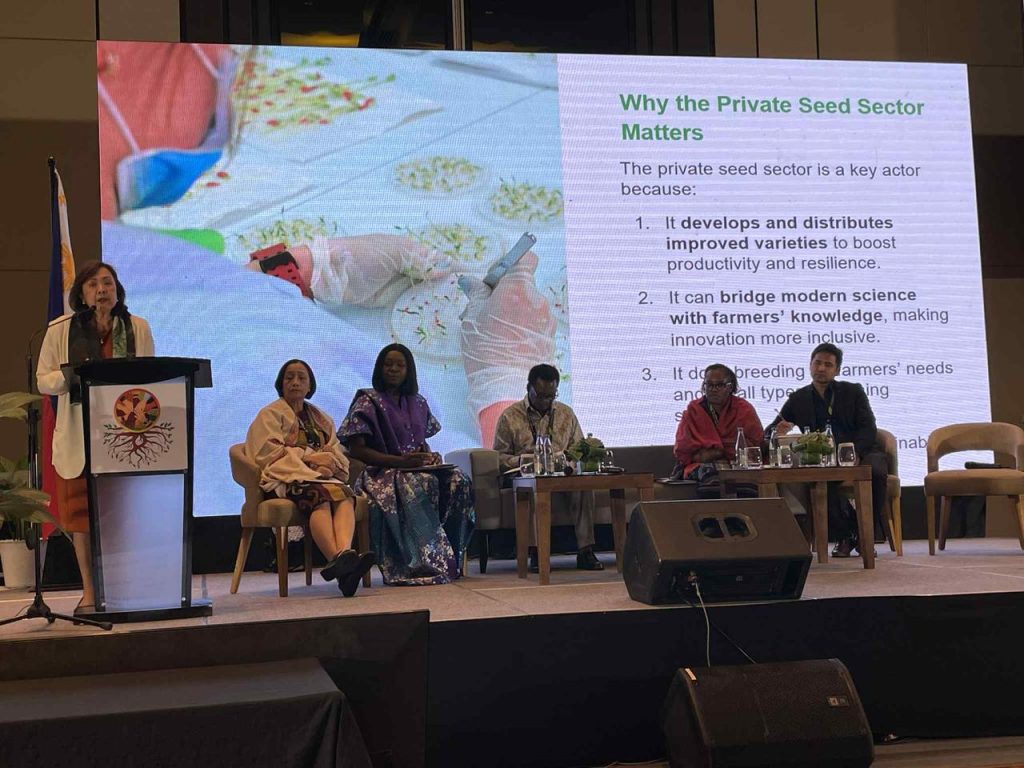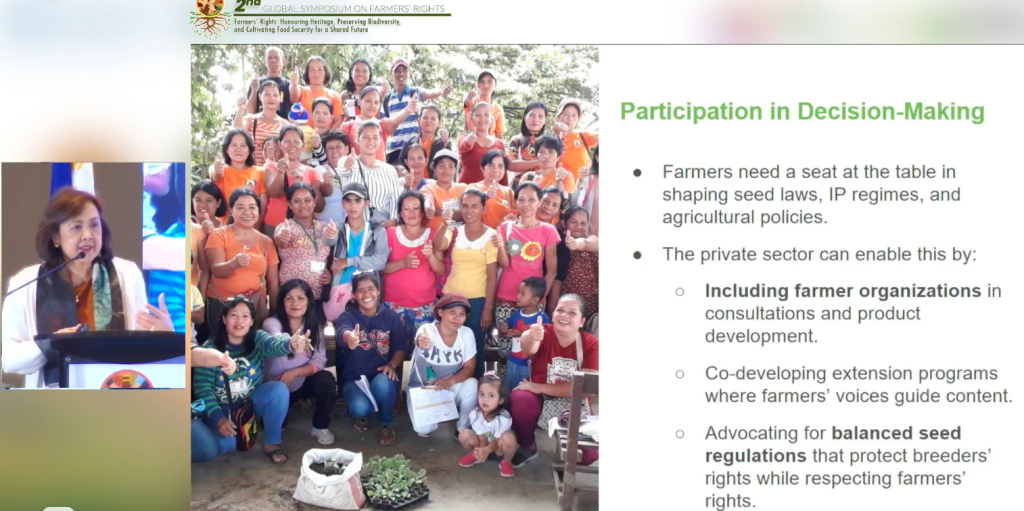ISF Board Member Mary Ann Sayoc, former President of the Philippine Seed Industry Association and current Group Head for Partnerships and Alliance at East-West, participated in the Second Global Symposium on Farmers’ Rights held in Manila, Philippines, on 16-19 September, representing the private seed sector at this international gathering organized by the FAO International Plant Treaty and hosted by the Department of Agriculture – Philippines (Official) Bureau of Plant Industry and the Philippine Plant Variety Protection Office (PVPO).

The Symposium aims to highlight notable experiences, innovative approaches, effective policies, proven practices, valuable insights, and lessons learned in the implementation of Farmers’ Rights, as outlined in Article 9 of the International Plant Treaty.
Plant Variety Protection and Farmers’ Rights: Finding the Balance
Ms. Sayoc contributed to a panel discussion on the intricacies of the relationship between plant variety protection (PVP) and farmers’ rights, showcasing how incentives to develop improved varieties of plants and better seeds can, perhaps counterintuitively, improve farmers’ livelihoods, making them more competitive.
While PVP is often misunderstood as serving only the interests of breeders or corporations, in reality, it is a vital tool to strengthen farmers’ livelihoods and resilience. Today’s farmers face unprecedented challenges, from climate change to pest pressures to the need for sustainable production. To meet these challenges, they require access to improved seeds adapted to changing conditions, while still retaining the freedom to choose traditional and local varieties when they wish.

Farmers’ Rights Within PVP Frameworks
PVP creates the incentives needed for continuous innovation in plant breeding, ensuring that new, resilient varieties actually make it to the market and are accessible to farmers. Without such protections, the motivation for breeders to invest years of research and resources into developing better seeds would diminish, leaving farmers with fewer options to adapt and thrive.
PVP frameworks are not, in fact, designed to undermine farmers’ rights but to complement them. National legislations can, and often do, include safeguards that allow farmers to save, use, and exchange seed while still benefiting from innovation. Examples from countries such as Vietnam, South Africa, and Malaysia demonstrate that robust protection systems can coexist with provisions for smallholder farmers, equitable benefit-sharing, and the preservation of traditional knowledge.
By ensuring both continuous innovation and farmer choice, PVP strikes a balance: rewarding the development of new, better varieties while empowering farmers to decide which seeds best serve their needs. Ultimately, this system is not about restricting farmers but about enabling them to have more and better options, which supports the improvement of their productivity, resilience, and livelihoods.
For more information on this engagement, please contact Lorelei Ana Garagancea of the ISF Secretariat.
Find out more in the ISF Intellectual Property Guide.
#SeedisLife


